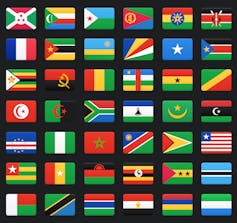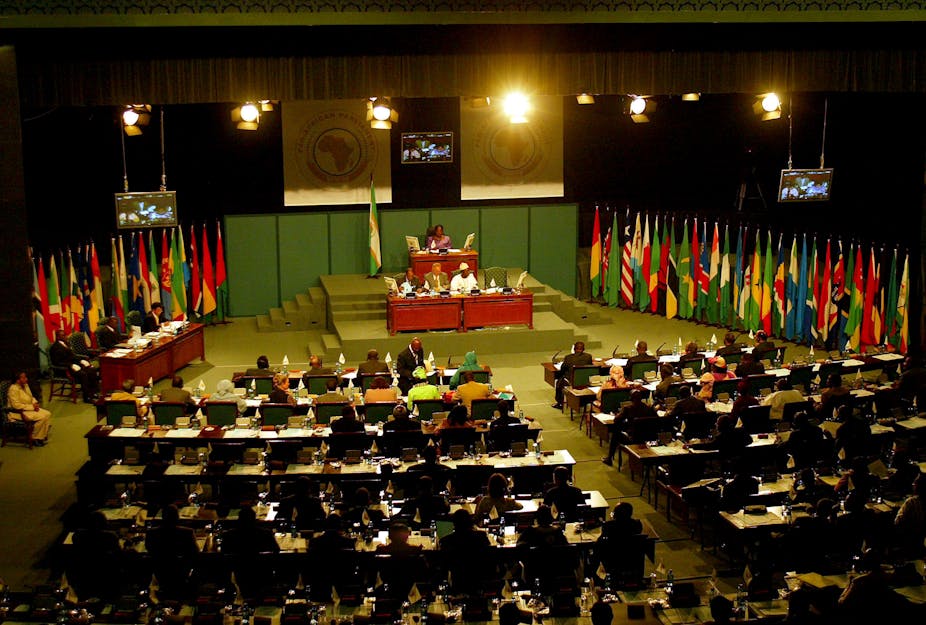During the independence struggle, leaders like Ghana’s Kwame Nkrumah argued that Africa could only rid itself of the scourges of slavery, colonialism, imperialism and racism as a single united entity. The dream was of a fully integrated United States of Africa.
Instead, Westphalian principles which focus on state sovereignty and territorial integrity prevailed. Post-colonial Africa emerged as a community of independent, fully sovereign nation-states, loosely affiliated through the Organisation of African Unity (OAU) established in 1963.

With colonialism and apartheid out of the way the OAU became largely dysfunctional and was replaced by the African Union (AU) in 2001.
More recently, the AU has promoted new dynamics in a bid to meet the challenges of globalisation. Accelerating regional integration is one of them. What this means is that African integration is back on the table.
The European Union (EU) is by far the most successful integration experiment the modern world has seen. Despite the many differences between Europe and Africa, and the AU and EU, European integration is widely considered as a model for regional integration and a credible example for Africa to consider.
But the UK’s decision to leave the EU, and other problems faced by the bloc over the past decade, have shown the union to be less than perfect. Under the circumstances, is the EU the best legal blueprint for African integration?
Giving up sovereign powers
The EU was formed in response to the death and destruction of World War Two. Since then it has successfully brought Europe together, developing an internal single market aimed at the free movement of people, goods, services and capital. Equally important is the fact that EU institutions have the power to make laws. This means that members states have given EU institutions supranational powers to make binding decisions. Ceding these law making powers has played an important role in driving integration.
The EU project led to the bloc becoming a major world trading power and its GDP per capita is now ahead of the US.
Integration across Africa has been weak and ineffectual. Effective integration would bring an opportunity for Africans to collectively take charge of its daunting security, socio-economic and governance problems. And a unified approach would help countries achieve the goals of peace and prosperity for all African citizens.
The AU says that it’s committed to integration. But so far there’s been very little content to this idea. What we find in Africa is cooperation without integration.
The AU mimics many of the EU institutions in terms of its formal structures. Like the EU, it has its own legislative, executive and judicial bodies in the form of the Pan African Parliament, an Assembly (heads of state), Executive Council (Ministers) and a Court of Justice. But, unlike the EU, institutions don’t have supranational powers enabling them to make binding decisions.

Instead, Africa pursues what it calls “cooperative multilateralism” – a commitment to cooperation alongside keeping the principle of non-interference in the domestic affairs of member states and respect for sovereignty and territorial integrity. This is where the AU’s main problem lies.
Absolute sovereignty is the polar opposite of supranationalism. This gets in the way of binding AU decisions being passed, leaving a legal vacuum that will have to be filled if member states are to collectively develop the capacity and political will to take charge of Africa’s destiny.
But it won’t be easy. National sovereignty has remained a hot potato in the EU and lies at the heart of the UK’s decision to leave. Calls to “take back control” helped to mobilise the support of voters. Promises of restoring national sovereignty – increasing control over the fiscus and borders – managed to clinch it for the leave campaign.
At a superficial level, the British referendum could be seen as an endorsement of the traditional view taken by African governments that sovereign powers shouldn’t be compromised.
African states aren’t ready to shift loyalties to a new centre with political authority over national states. Most believe that a transfer of power will inevitably compromise political independence. This in turn would challenge impunity from accountability that protects many African politicians.
Finding a balance
Everything considered, the EU remains a prime example of the benefits regional integration can bring to a continent willing to cooperate.
But AU institutions should only be given supranational powers if it’s done in a way that meets African interests and reflects a balance between regional and national powers.
For that to happen, there needs for a deep trust of governments and ordinary people. And the case needs to be made that the centre can add more than it is taking away when it comes to well-being, security and prosperity.
Recent events in the EU have shown that finding the right balance between regional and national powers is crucial. This balance must be tailored to continental realities. African nations must be convinced that transferring powers would be more beneficial than clinging to absolute sovereignty.
A balance of power can only be achieved by limiting the jurisdiction of the AU to certain mutually agreed areas of cooperation. In these areas AU law would impose legally binding obligations and override national law.
At the same time, any new arrangement cannot allow national sovereignty to continue unlimited.
Striking this balance might entail taking hard decisions. Two big areas of contention would be accepting some interference in domestic affairs and, secondly, endowing the Pan African Parliament with law making powers.
African nations might be persuaded to adopt an EU-style model given the major benefits to trade between member states. Trade within African has far from reached its potential. Intracontinental trade could be enhanced and streamlined.
But the real question is whether the political elite will be willing to take these lessons on board.

